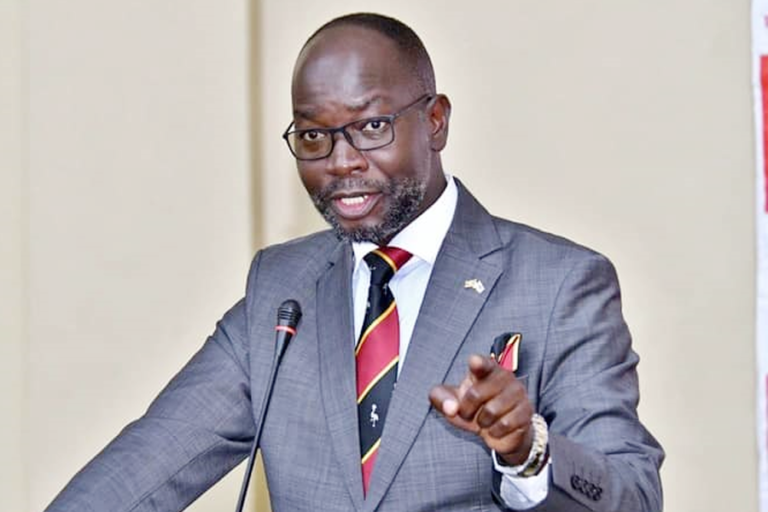The Government Chief Whip, Hamson Obua, has summoned Members of Parliament (MPs) from the National Resistance Movement (NRM) for a caucus meeting on September 6, 2024.
This meeting is set against an escalating standoff between the Executive and the Legislature over the proposed merger and rationalization of government agencies.
Minister of Local Government Halts Rationalization Bills
The call for a caucus comes after Minister of Local Government, Raphael Magyezi, recently decided to halt the re-tabling of several rationalization bills, originally scheduled for discussion in August 2024.
Magyezi highlighted the need for further consultations with key stakeholders before proceeding.
President Museveni’s Meeting with Parliamentary Committees
On September 3, 2024, President Yoweri Museveni held a pivotal meeting with MPs from the Parliamentary Committees on Agriculture, National Economy, and Finance.
During the discussions, it was decided to move forward with rationalising the Uganda Coffee Development Authority (UCDA) and the Dairy Development Authority (DDA), which will both revert to the Ministry of Agriculture.
However, to ensure a smooth transition, UCDA’s merger will be delayed by three years.
Insights from MPs on the Rationalization Plan
MPs Abed Bwanika (Kimaanya-Kabonero) and Basil Bataringaya (Kashari North) briefed journalists about the meeting with the President.
Bwanika explained that President Museveni made a strong case for rationalizing the DDA and UCDA, arguing that the move would save public funds.
However, MPs voiced concerns over the Ministry of Agriculture’s ability to manage UCDA’s mandate, particularly in maintaining the quality standards of Uganda’s coffee industry.
Concerns Over Uganda’s Coffee Industry
“We informed the President that the Ministry of Agriculture lacks the capacity to handle UCDA’s responsibilities, particularly in regulating quality, which is crucial for our international market.
Should we transfer this mandate, we risk losing our competitive edge and disrupting a market that supports the livelihoods of 12.5 million Ugandans,” Bwanika warned.
Three-Year Transition Period for UCDA Integration
Bwanika further revealed that President Museveni acknowledged these concerns and proposed a three-year transition period for UCDA’s integration into the Ministry of Agriculture.
This proposal is expected to undergo parliamentary scrutiny.
“The President suggested passing the law with a three-year transition clause, but many of us believe UCDA should continue operating independently, given its significant contributions to the Treasury—Shs82 billion last year—and its role in generating 15% of Uganda’s foreign earnings,” Bwanika added.
MPs Reach Consensus on Dairy and Coffee Authorities
MP Basil Bataringaya confirmed that while the Dairy Development Authority (DDA) will be integrated into the Ministry of Agriculture, the rationalization of UCDA has been postponed.
The decision aims to allow stakeholders to reach consensus on the best way to regulate Uganda’s coffee sector.
“The conclusion was to rationalize the Dairy Development Authority, with the law now finalized. However, for UCDA, we have agreed on a three-year period during which it will continue regulating the coffee sector, with support from the Ministry of Agriculture. This period will allow us to ensure the Ministry is adequately prepared to take over this vital sector,” Bataringaya explained.
Risks to Uganda’s Coffee Industry
Bataringaya echoed MPs’ concerns about potential risks to Uganda’s coffee industry if regulation falters under the Ministry of Agriculture.
“Our fear is that any lapse in regulation could derail the progress we’ve made. We must ensure that Uganda achieves its goal of producing 20 million bags of coffee in the near future,” he added.
Parliament’s Defiance of Executive Directives
These developments follow Parliament’s rejection of President Museveni’s directive in February 2024 to merge agencies, including the Uganda National Roads Authority, UCDA, and DDA, into their parent ministries. MPs argued that inefficiencies within these ministries could further impede service delivery.
President’s Response to Parliament’s Defiance
In response to Parliament’s defiance, President Museveni refused to sign several of the Rationalization Bills. Consequently, the Ministry of Public Service, responsible for overseeing the rationalization process, re-tabled the bills for Parliament’s reconsideration.

